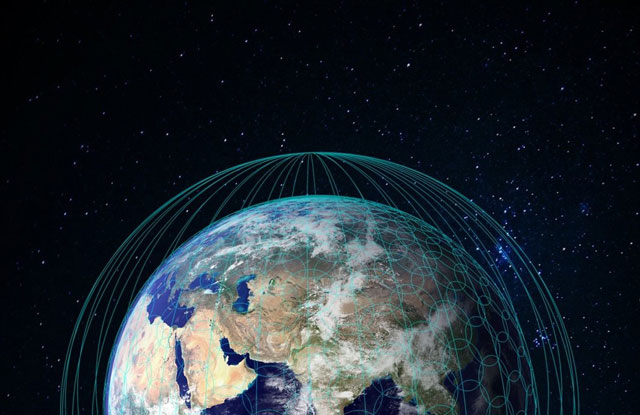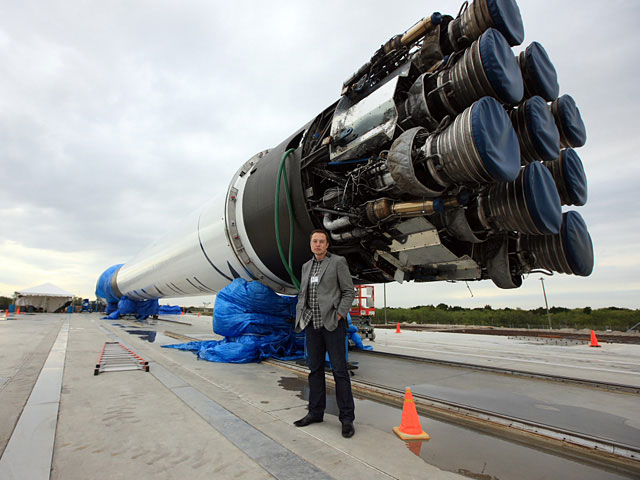
The race is on to get billions of people connected to the Internet via a global network of satellites. Europe’s Airbus announced this week that it is to design and build up to 900 satellites for the privately owned OneWeb, which includes Richard Branson as a board member.
A statement from OneWeb said the plan was to begin launches in 2018 to bring “affordable Internet access for everyone” by providing approximately 10Tbit/s of low-latency, high-speed broadband.
That estimate of 10Tbit/s may be misleading, though. The broadband access rates experienced by customers are more likely to be in the range of 2Mbit/s to 50Mbit/s.
It is an ambitious move and follows reports that the entrepreneur Elon Musk’s company SpaceX is seeking US government approval of a network of 4 000 satellites to provide similar Internet access.
What makes OneWeb and SpaceX’s ventures interesting is their plan to connect people anywhere on the planet, similar to Google’s plan revealed last year.
Facebook’s Internet.org is another project that aims to make it easier for more people anywhere to connect to the Internet.
Only about 40% of the world’s population currently has access to the Internet and annual growth has been slowing from 10,5% in 2013 to 8% in 2013 and 7,9% last year.
Any further growth requires cost-effective access such as a global satellite network. With the mass production of micro-satellites, building such a pervasive broadband Internet powered by a constellation of satellites opens up many possibilities.
It makes business sense for large Internet companies such as Facebook and Google to increase access in the developing world.
Having benefited from the huge uptake of Internet connectivity among developed countries, these companies see an as-yet-untapped market opportunity among those who do not currently have Internet access.
If other large technology companies hungry for users want to increase affordable Internet access, then governments should take advantage of these opportunities. Connecting the unconnected to the Internet has many positive advantages for the community.
The Internet supports development by transforming a younger generation’s ability to acquire knowledge and skills and contribute productively to national growth. It can also help an ageing population to remain active and access cost-effective health care.
Connectivity is transforming transport, manufacturing, logistics and environment management. All forms of government can achieve greater efficiency and cost-effectiveness through their citizens being online and connected.
Access to digital connectivity is essential in the networked society and it is imperative that there is equitable and universal access throughout the world.
The Alliance for Affordable Internet has long highlighted the need to increase access by making the Internet affordable to a greater percentage of the global population.
Its latest Affordability Report says only 5% of the population of the world’s 49 most underdeveloped countries are online. But for the 2bn people living on less than US$2/day, basic broadband access can exceed 40% of their monthly income.
The low income of many regions does not create the necessary demand to drive investment in affordable Internet access options. This leaves these communities in a vicious cycle, which is widening the gap between the connected and non-connected.
A global satellite network may be one solution to providing such access.
But how will it work?
Delivering broadband over such a network faces significant challenges in design, deployment and operation of such a global infrastructure. It must also make sure it’s affordable for those from economically disadvantaged or remotely located regions.
A large constellation of satellites requires agile and cost-effective backhaul technology to provide interconnections between the satellites to form an extension to the Internet. Backhaul refers to the links or network required between satellites and the Internet to provide customers with internet access.

This can be achieved with laser beams or microwave beams operating at millimetre-wave frequencies. They will also require self-aligning systems to pin-point other satellites and maintain links despite fluctuations in their relative positions.
Alternatively, the satellites could form the necessary backhaul by connecting to ground stations suitably connected close to major internet gateways. Either way, satellite networks also need ground stations and internet gateways, which adds to the cost and the complexity of deploying and managing the network.
With a large constellation of satellites, we can expect a portion of satellites to be dysfunctional at times. The operators need to factor that into the operation and also account for potential impacts and risks of losing satellites. That is why the OneWeb/Airbus deal is for 900 satellites but a plan to launch only 700.
The current cost of satellite-based broadband access may only be within the reach of those living in rural communities of developed countries and for emergency communications. The key question remains whether operators can reduce the cost further by leveraging these early markets to deliver affordable access to the remaining two billion people earning $2/day.
The world needs connectivity and it is now needed in places where it has been nearly impossible. Micro-satellites could offer real potential that needs to be explored and may fuel a space race once more among the Internet companies.![]()
- Thas Ampalavanapillai Nirmalathas is director of the Melbourne Networked Society Institute as well as professor of electrical and electronic engineering and co-founder/academic director of the Melbourne Accelerator Programme at the University of Melbourne
- This article was originally published on The Conversation

